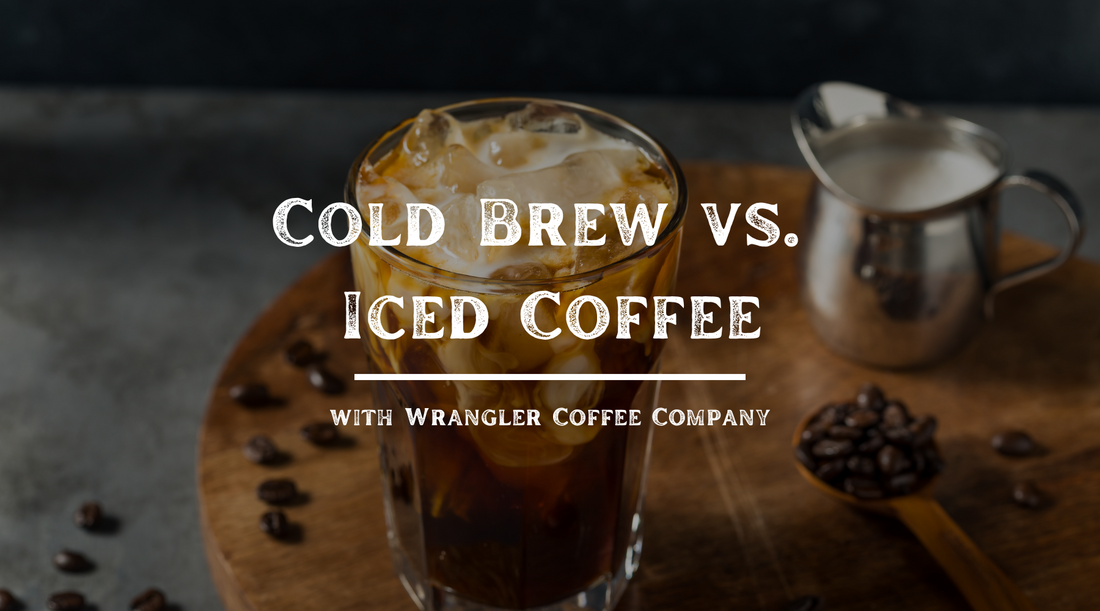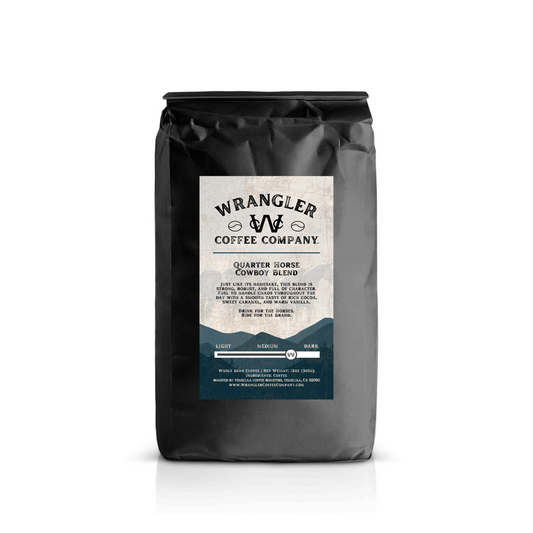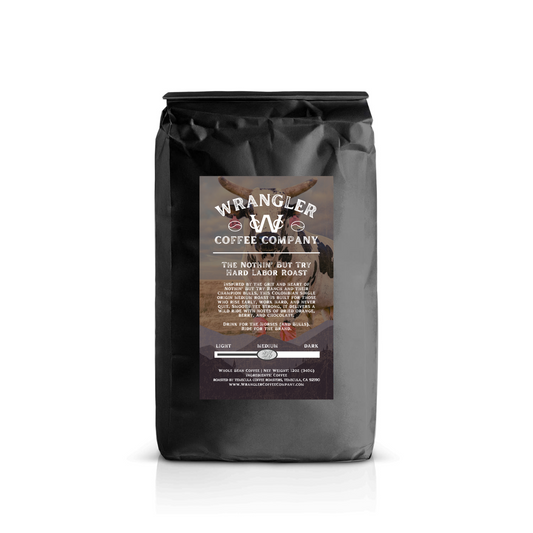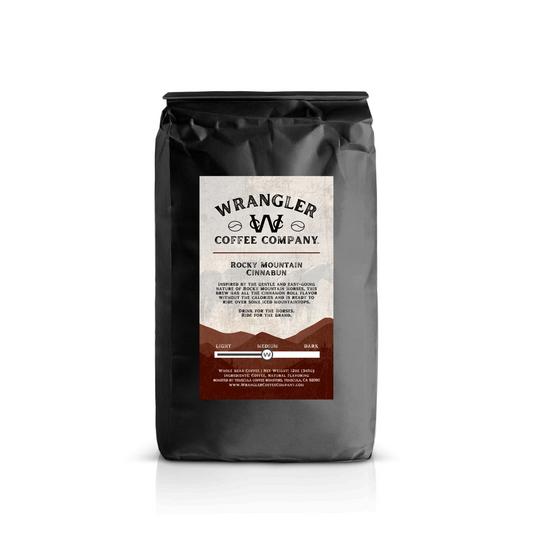
What is the Difference Between Cold Brew and Iced Coffee?
Share
When it comes to enjoying a refreshing cup of coffee on a hot day, many coffee lovers find themselves choosing between cold brew and iced coffee. Though these two beverages might seem similar at first glance, they are distinct in their brewing methods, flavor profiles, and overall characteristics. Understanding the difference between cold brew and iced coffee can help you decide which one suits your taste preferences and lifestyle best. At Wrangler Coffee Company, we pride ourselves on offering the finest specialty coffee, and we’re here to guide you through the nuances of these popular cold coffee options.
Brewing Methods
The primary difference between cold brew and iced coffee lies in how they are prepared. Cold brew coffee is made by steeping coarsely ground coffee beans in cold water for an extended period, typically 12 to 24 hours. This slow extraction process takes place at room temperature or in the refrigerator, resulting in a smooth, rich, and less acidic beverage. Once the steeping is complete, the coffee is filtered to remove the grounds, leaving behind a concentrated coffee that can be diluted with water or milk to taste.
Iced coffee, on the other hand, is brewed using traditional hot brewing methods, such as drip or pour-over. After brewing, the hot coffee is cooled down by pouring it over ice or refrigerating it. Some baristas might use a flash-chilling method to rapidly cool the coffee without diluting it with melting ice. This quick process preserves the coffee's bright and acidic flavors, offering a refreshing yet different taste experience compared to cold brew.
Flavor Profiles
The brewing methods directly impact the flavor profiles of cold brew and iced coffee. Cold brew coffee is known for its smooth, mellow taste with low acidity and a slightly sweet undertone. The extended steeping time allows for the extraction of different flavor compounds from the coffee beans, resulting in a rich and full-bodied beverage. This makes cold brew an excellent choice for those who prefer a less acidic and more nuanced coffee.
Iced coffee, by contrast, retains much of the bright, lively flavors associated with hot-brewed coffee. The hot water used in brewing extracts the acids and oils quickly, giving iced coffee a more pronounced acidity and a lighter body. This can result in a refreshing, crisp drink that highlights the unique characteristics of the coffee beans. However, some might find the acidity of iced coffee too sharp, especially if they are sensitive to acidic beverages.
Caffeine Content
Another important factor to consider is the caffeine content. Cold brew coffee generally has a higher caffeine concentration compared to iced coffee. The extended steeping time in cold brew allows for a more thorough extraction of caffeine from the coffee grounds. However, because cold brew is often diluted before serving, the final caffeine content in your cup can be adjusted to your preference.
Iced coffee, brewed using hot water, typically extracts caffeine more quickly but in lower amounts compared to the cold brew process. While both beverages can give you that much-needed caffeine boost, cold brew might offer a stronger kick, depending on how it’s prepared and served.
Versatility and Serving Options
Both cold brew and iced coffee offer versatile serving options that can be customized to suit individual tastes. Cold brew can be enjoyed straight, diluted with water or milk, or used as a base for various coffee cocktails and specialty drinks. Its smooth and mellow profile pairs well with different flavors, making it a popular choice for creative coffee concoctions.
Iced coffee can also be served in various ways, from black and unsweetened to mixed with milk, cream, or flavored syrups. It’s a great option for those who enjoy experimenting with different flavor combinations and want a quick, refreshing drink. The inherent brightness and acidity of iced coffee can complement sweet and fruity additions, enhancing the overall taste experience.
Storage and Shelf Life
One of the practical advantages of cold brew is its extended shelf life. Because it’s brewed with cold water and stored in the refrigerator, cold brew concentrate can stay fresh for up to two weeks. This makes it convenient for those who like to prepare a large batch in advance and enjoy a ready-to-drink coffee whenever they please.
Iced coffee, being brewed hot and then cooled, has a shorter shelf life. It’s best enjoyed freshly brewed and doesn’t store as well as cold brew. If you prefer the taste of iced coffee, it’s recommended to brew just enough for immediate consumption to maintain its optimal flavor.
Getting the Most Out of Your Coffee with WCC
Understanding the difference between cold brew and iced coffee can enhance your appreciation for these distinct beverages and help you choose the best option for your coffee-drinking habits. At Wrangler Coffee Company, we celebrate the diversity of coffee and offer a range of specialty beans perfect for both cold brew and iced coffee. Whether you prefer the smooth, rich taste of cold brew or the bright, refreshing profile of iced coffee, our expertly curated selections are sure to satisfy your cravings. Explore our top picks and elevate your cold coffee experience today!




